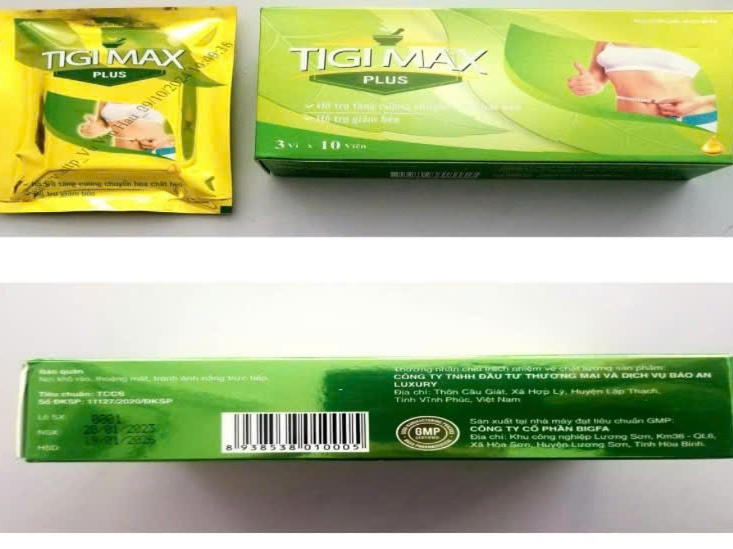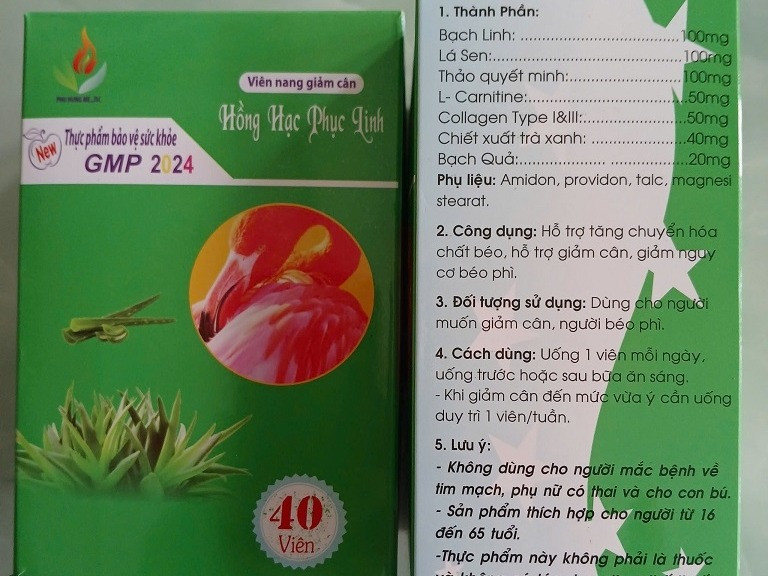Vietnamese health authorities are sounding the alarm as pharmacies nationwide are increasingly being caught selling counterfeit drugs, unlicensed medications, and dietary supplements containing banned substances - posing serious risks to public health.
Fake medicines discovered in Hanoi


On May 12, Hanoi’s Center for Drug, Cosmetics and Food Testing inspected Duc Anh Pharmacy (operated by Duc Anh Pharmaceutical Medical Equipment Co., Ltd. in Dong Da District) and found seven types of drugs lacking legal registration or import permits.
Among the counterfeit products was NEXIUM 40mg Enterik Kapli Pellet Tablet (Esomeprazole), Lot No. 23H420, expiring September 2027. Laboratory analysis revealed it contained only 6.91mg of Esomeprazole - just 17.27% of the labeled amount.
Another sample, DIAMICRON MR 60mg (Gliclazide), Lot No. 23F603, expiring April 2026, contained only 42.5mg of Gliclazide per tablet, or 70.83% of its claimed dosage - falling below regulatory standards.
At An An Pharmacy in Ha Dong District, authorities found Theophylline Extended Release 200mg (Lot No. 21127, manufactured by Pharmacy Laboratories Plus) with only 6.3% of the active ingredient. The bottle lacked a Vietnamese label and did not disclose its country of origin - evidence it was counterfeit.
Dietary supplements laced with banned substances
The issue extends beyond medication. At Nhat Ngan Pharmacy in Tien Giang province, authorities seized samples of Hong Hac Phuc Linh weight loss capsules containing Sibutramine, Desmethylsibutramine, and Didesmethylsibutramine - substances banned in food products due to their harmful health effects.
Banned substances were found in dietary supplements sold at pharmacies. Photo: Vietnam Food Safety Authority
Similar violations were previously found in TIGI MAX PLUS supplements at Nhat Tan Pharmacy (Phu Yen) and Loss Weight Phuc Linh Collagen at Thien An Pharmacy (Dong Nai), both containing Sibutramine - a substance linked to cardiovascular risks and banned in many countries.
Why fake and dangerous products are still reaching pharmacies
Under current Vietnamese law, dietary supplements are categorized into four groups: supplements, health protection foods, medical nutrition foods, and foods for special dietary use.
Chu Quoc Thinh, Deputy Director of the Vietnam Food Safety Authority, explained that only the "health protection food" category undergoes quality checks, while other groups, especially those under self-declaration protocols, face minimal scrutiny. Even when regulated, registration requirements for health supplements are relatively loose.
Due to limited resources, not all health supplements are inspected after hitting the market. Many manufacturers exploit regulatory loopholes to mislabel or mix banned substances into products and distribute them through pharmacy channels.
Tạ Manh Hung, Deputy Director of the Drug Administration of Vietnam, said that pharmacies often buy medications without proper invoices or source documentation, allowing counterfeit drugs to enter legitimate distribution systems. Non-compliance with storage and sourcing regulations further reduces product quality.
Hung also noted that existing penalties are too lenient to be effective deterrents. Criminal liability only applies if the value of fake goods exceeds 30 million VND (about 1,180 USD). Most retail violations involve small quantities - just two or three bottles costing around 30,000 VND ($1.18) each - resulting in fines of only 2 to 6 million VND ($80–240).
Retailers selling drugs of unknown origin valued under 1 million VND may face nothing more than a warning or a fine of 600,000 to 1 million VND ($24–40) and must forfeit or destroy the goods.
Stricter enforcement and harsher penalties on the way
At the recent “Fake Drugs - Real Consequences” workshop, Deputy Minister of Health Do Xuan Tuyen stressed that medications and dietary supplements are no ordinary commodities - they directly affect public health and thus require stronger penalties for counterfeit activity.
The Ministry of Health has submitted a proposal to the Prime Minister, who has approved in principle a plan to increase both administrative and criminal penalties for producing and trading fake pharmaceuticals and dietary supplements.
The Vietnam Food Safety Authority is now drafting amendments to Decree 15/2018 to tighten post-market surveillance and close existing loopholes.
According to Deputy Director Chu Quoc Thinh, the agency is considering a model similar to the U.S. FDA, combining strict pre-market review with routine and unannounced post-market inspections. Once a company registers a product, regulatory bodies would proactively inspect documentation, take market samples, and test real-world product quality - especially for health supplements.
Authorities will also conduct surprise inspections based on consumer complaints, media reports, or referrals from other agencies. Testing centers will be empowered to independently monitor the market, moving beyond the current reactive model based only on submitted samples.
Vo Thu